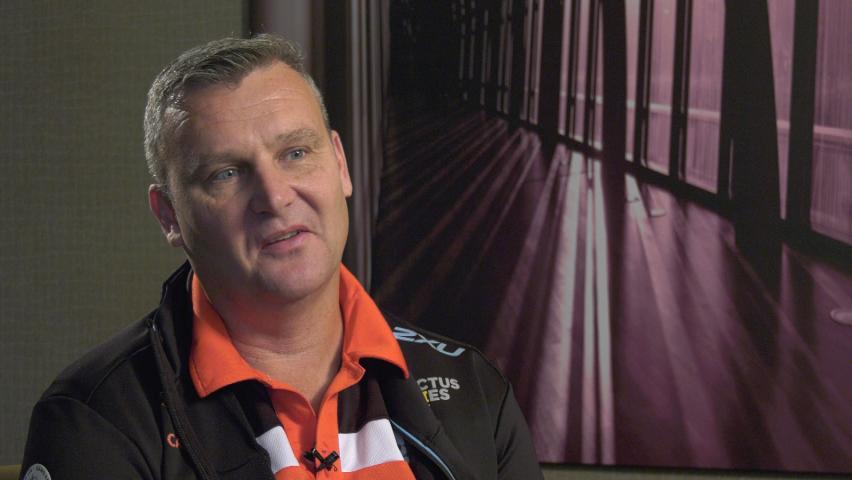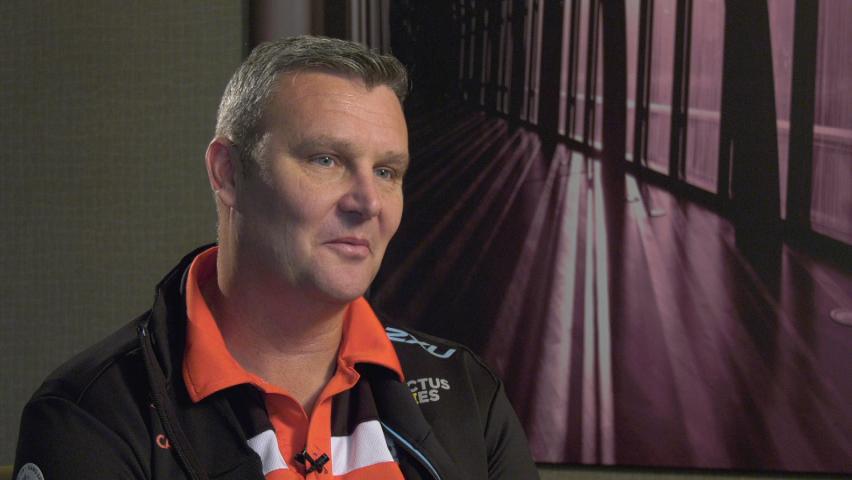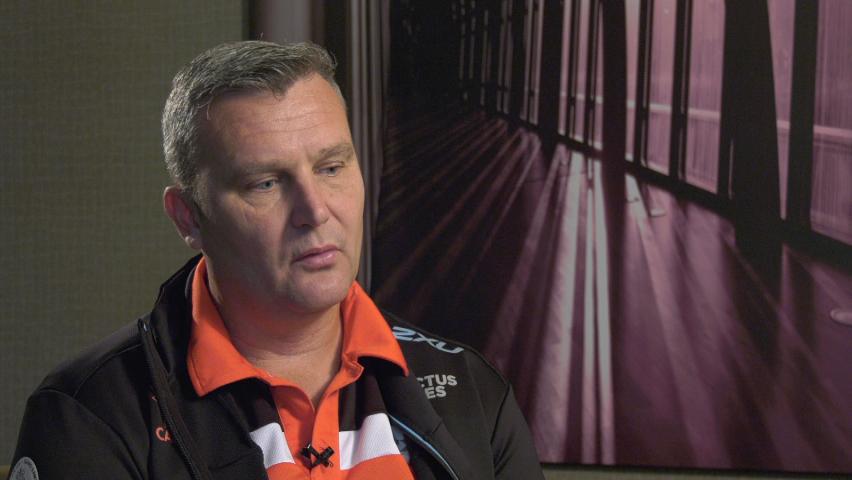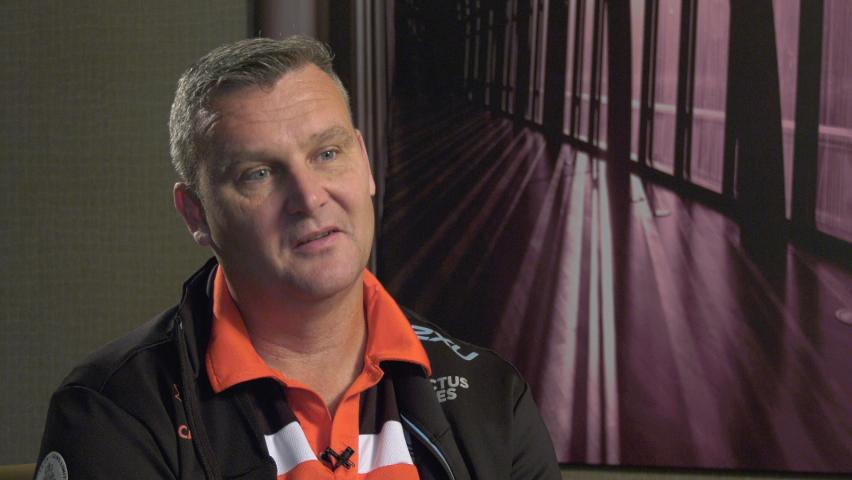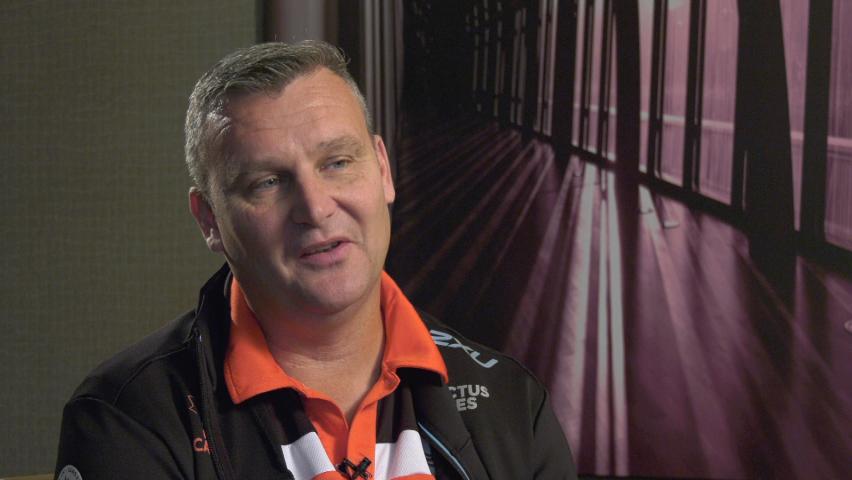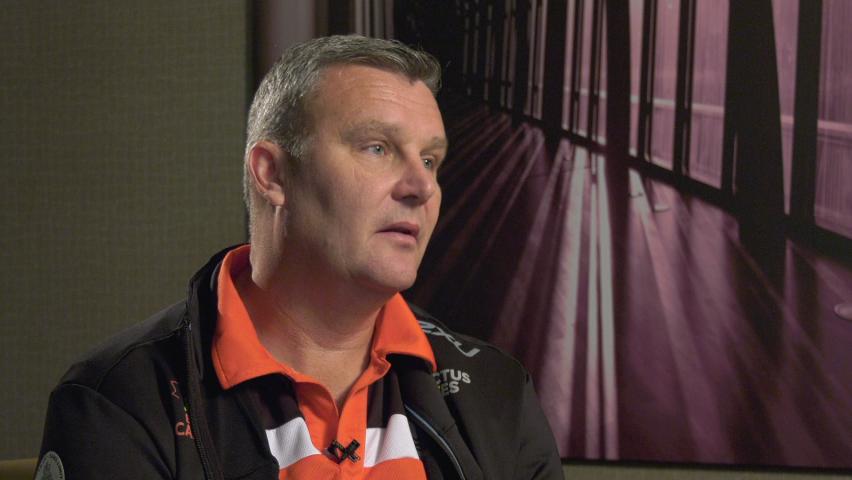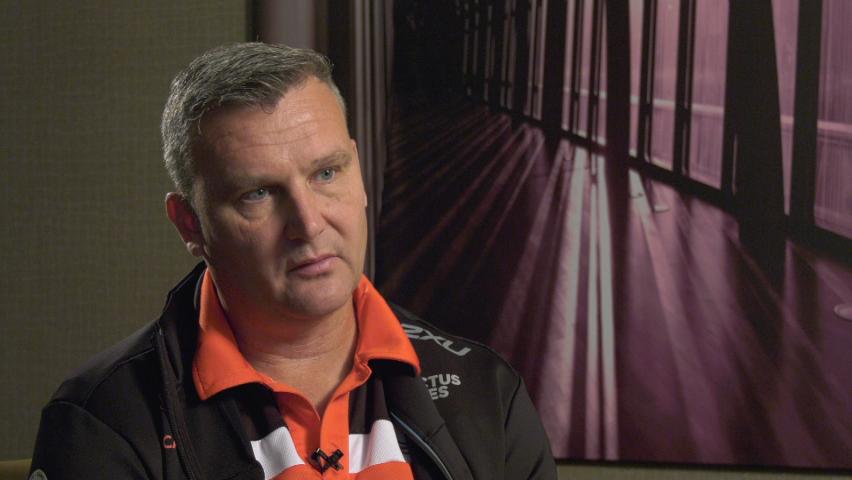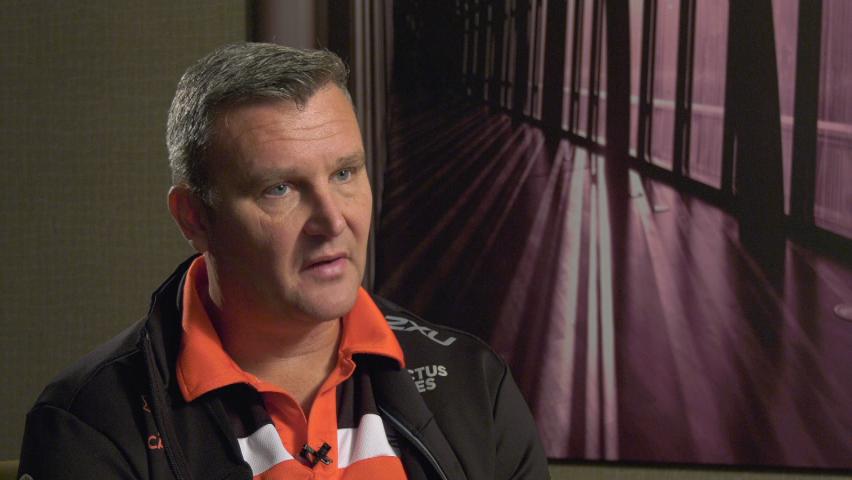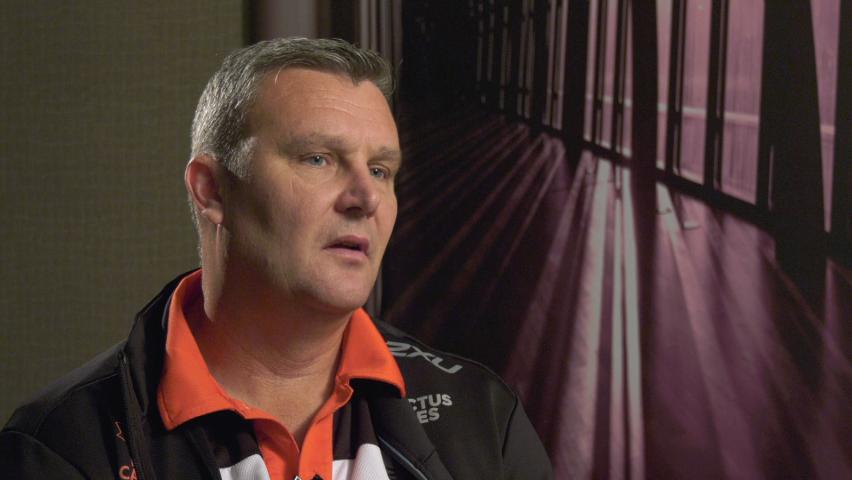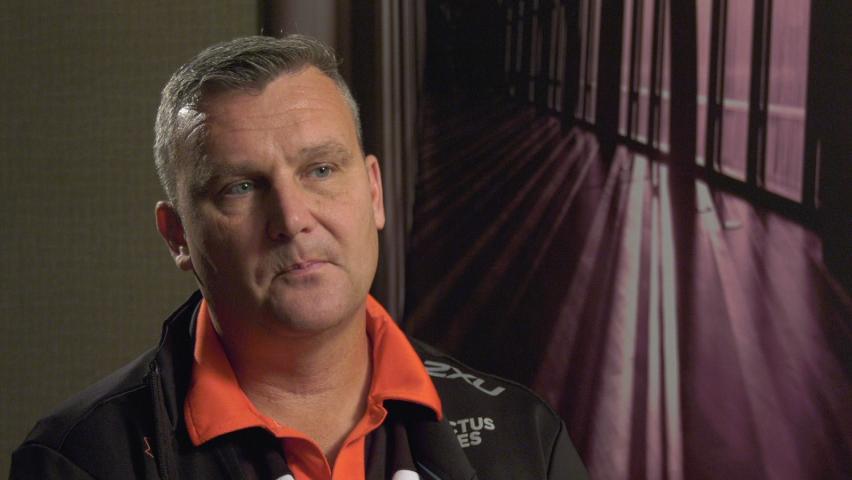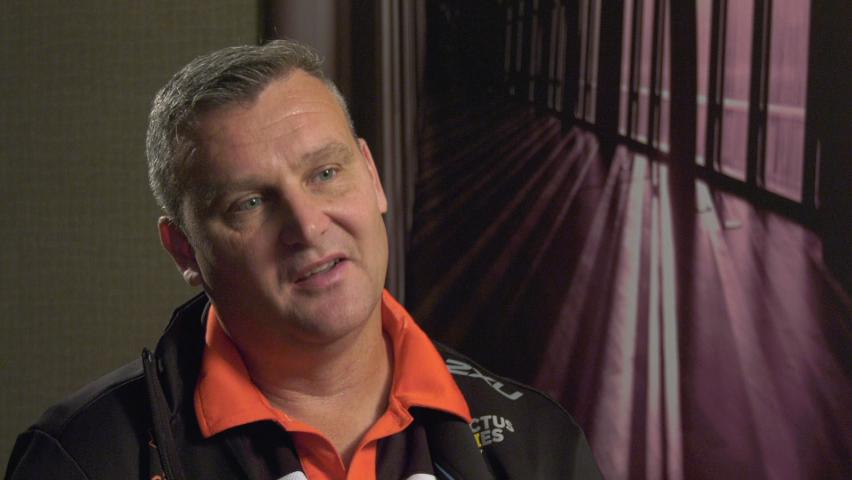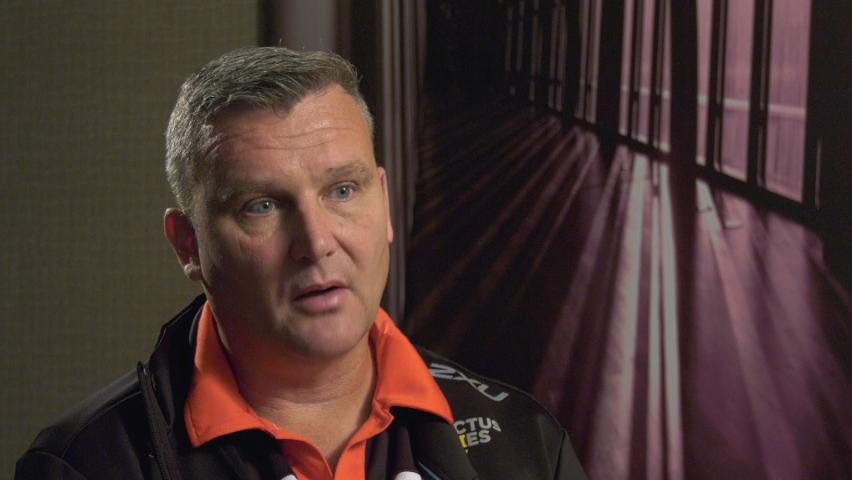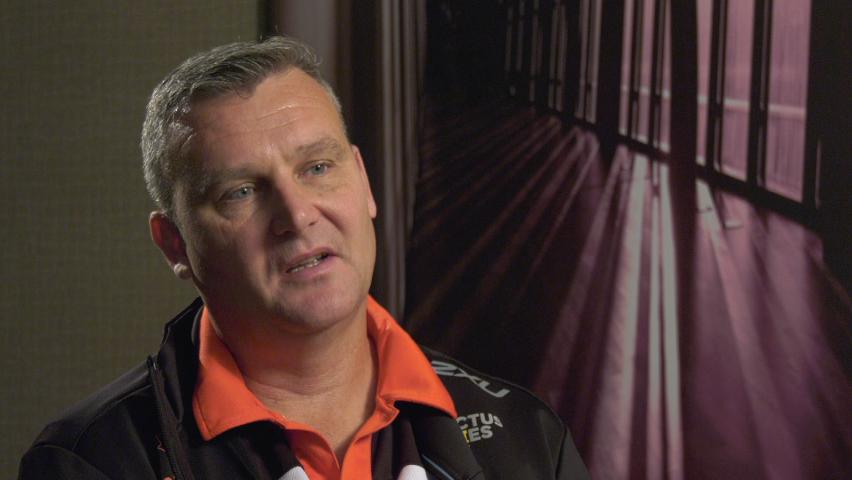Very Lucky to have Support
Heroes Remember
Very Lucky to have Support
Transcript
Description
Mr. Reist speaks about symptoms of PTSD and how he copes.
Mike Reist
Mr. Mike Reist was born December 18, 1969 in Waterloo, Ontario. Having had a great uncle as a role model, Mike made the choice to join the Canadian Forces, only advising his family of these intentions two weeks prior to attending infantry training. Mike joined with 2 RCR, 2nd Battalion Infantry Division and held rank of warrant officer. Mike has a long record of service overseas - Cyprus 1991, Bosnia 1992,’96, ’99, Africa 2000, Afghanistan 2003, ’07 and Haiti in 2005. Mike had 27½ years of military service. Mike is very proud of his military career and is quoted as saying, “It’s the best thing that ever happened!” Upon medical release, Mike was stricken with PTSD and has become an advocate in speaking out about this condition. He is presently active with the Soldier On program and has competed in the Invictus Games in Toronto 2017 as part of Team Canada’s wheelchair rugby. Mike presently resides in Gagetown, New Brunswick with his wife and family.
Meta Data
- Medium:
- Video
- Owner:
- Veterans Affairs Canada
- Recorded:
- September 29, 2017
- Duration:
- 2:50
- Person Interviewed:
- Mike Reist
- Location/Theatre:
- Canada
- Battle/Campaign:
- Afghanistan
- Branch:
- Army
- Units/Ship:
- Royal Canadian Regiment
- Rank:
- Warrant Officer
Related Videos
- Date modified:



